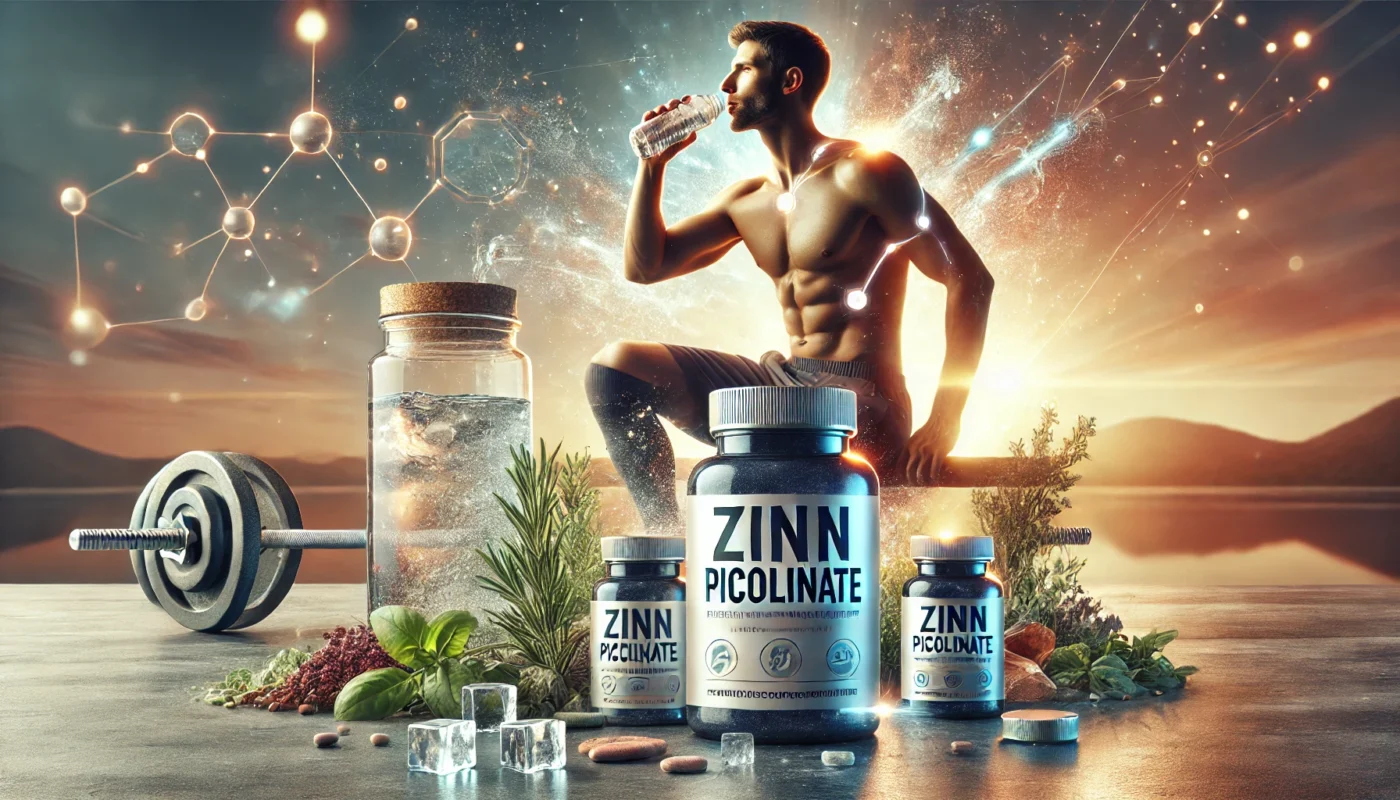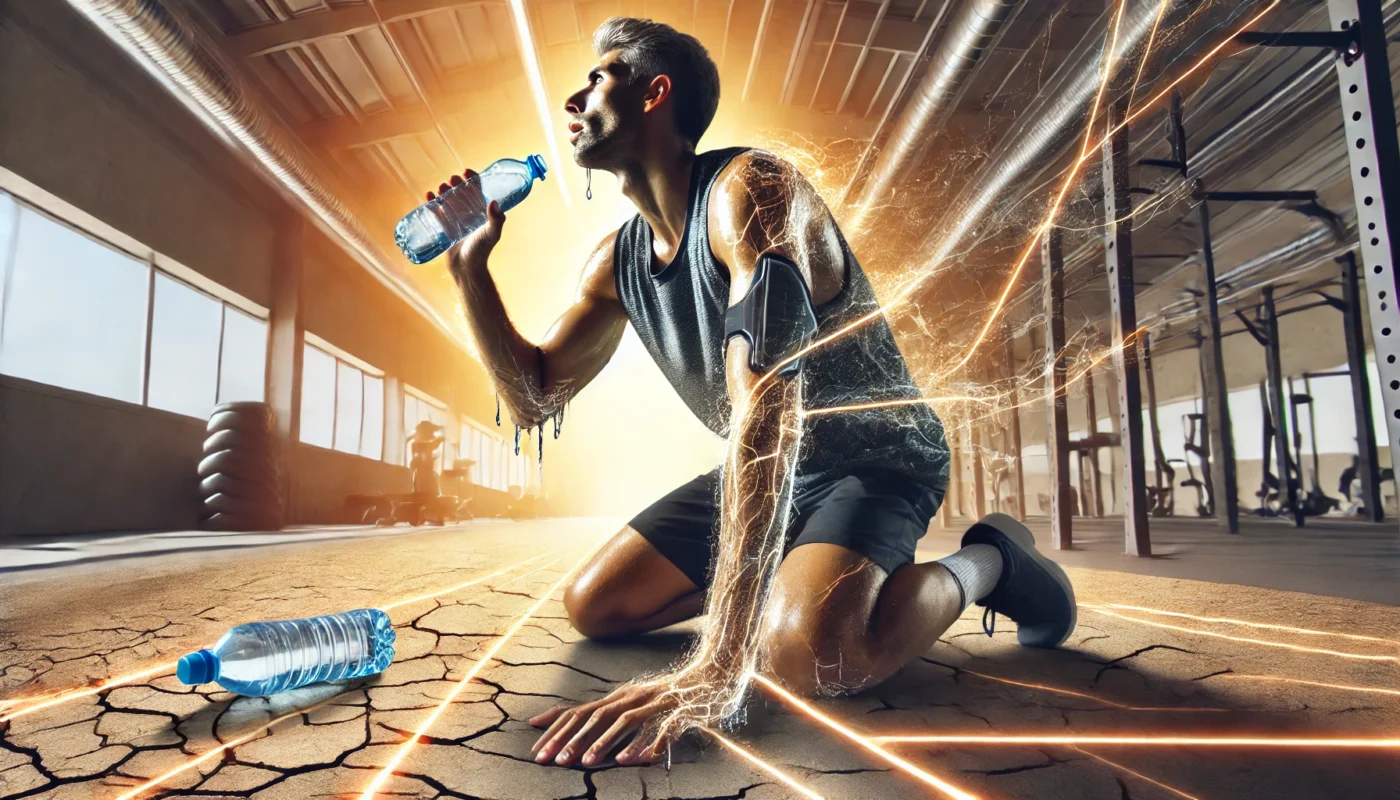Proper hydration is crucial for optimizing athletic performance, maintaining endurance, and preventing exercise-induced fatigue. During intense workouts, the body loses significant amounts of water and electrolytes through sweat, which, if not replenished, can lead to dehydration and impair physical performance. While drinking water is essential, maintaining electrolyte balance is equally important for sustaining hydration and overall muscle function.
Zinc, an essential trace mineral, plays a critical role in electrolyte regulation, fluid balance, and cellular hydration. Zinc picolinate, a highly bioavailable form of zinc, ensures optimal absorption and utilization of this vital nutrient. By supporting key enzymatic functions, reducing oxidative stress, and stabilizing electrolyte transport, zinc picolinate can help athletes and active individuals stay hydrated during workouts. This article explores the science behind zinc picolinate’s role in preventing dehydration and promoting peak performance, supported by clinical studies and research findings.
You May Also Like:
Zinc Picolinate for Muscle Preservation in Aging Athletes: A Natural Solution
Zinc Picolinate for Faster Adaptation to High-Intensity Training: Does It Help?
Understanding Dehydration During Workouts
Dehydration occurs when the body loses more fluids than it takes in, leading to an imbalance in water and electrolytes. During physical activity, sweating is the primary cause of fluid and electrolyte loss.
Key Effects of Dehydration on the Body:
- Reduced Athletic Performance:
A fluid loss of as little as 2% of body weight can significantly impair endurance and strength. - Muscle Cramps:
Electrolyte imbalances, particularly in sodium, potassium, and magnesium, increase the likelihood of cramps. - Fatigue:
Dehydration reduces blood volume, decreasing oxygen delivery to muscles. - Heat-Related Illnesses:
Inadequate hydration can lead to heat exhaustion or heat stroke. - Cognitive Decline:
Dehydration affects brain function, reducing focus and reaction times.
Maintaining hydration during exercise involves not only replenishing lost water but also restoring electrolyte balance. Zinc plays a vital role in this process.
The Role of Zinc in Hydration and Electrolyte Balance
Zinc contributes to hydration and electrolyte regulation through its involvement in several physiological processes:
- Regulating Electrolyte Transport:
Zinc supports the function of ion channels and transporters that regulate sodium, potassium, and chloride balance in cells. - Enhancing Cellular Hydration:
Zinc modulates aquaporins, proteins that facilitate water transport across cell membranes. - Supporting Enzyme Activity:
Zinc is a cofactor for enzymes like carbonic anhydrase, which helps maintain pH and electrolyte balance. - Reducing Oxidative Stress:
Exercise generates free radicals that can disrupt cellular hydration. Zinc’s antioxidant properties protect against oxidative damage. - Maintaining Muscle Function:
Zinc supports nerve signaling and muscle contraction, which rely on proper electrolyte levels.

What Is Zinc Picolinate?
Zinc picolinate is a chelated form of zinc, where zinc is bound to picolinic acid. This structure enhances zinc absorption in the gastrointestinal tract, making it one of the most effective forms of zinc supplementation. For athletes and active individuals, zinc picolinate offers targeted support for hydration and performance.
How Zinc Picolinate Supports Hydration During Workouts
1. Regulating Sodium and Potassium Balance
Sodium and potassium are key electrolytes involved in muscle contraction and hydration. Zinc picolinate supports the activity of sodium-potassium ATPase, an enzyme that maintains electrolyte gradients in cells.
- Study Insight: Research in American Journal of Clinical Nutrition found that zinc supplementation improved sodium-potassium balance in athletes, reducing the risk of dehydration-related fatigue.
2. Enhancing Water Transport in Cells
Aquaporins are proteins that facilitate water movement across cell membranes, ensuring cells remain hydrated. Zinc is essential for the regulation of aquaporin activity.
- Clinical Evidence: A study in Journal of Cellular Physiology showed that zinc increased aquaporin expression by 20%, enhancing cellular hydration during exercise.
3. Supporting Enzymatic Functions
Carbonic anhydrase, a zinc-dependent enzyme, plays a key role in maintaining acid-base balance during intense workouts, ensuring proper hydration and electrolyte stability.
- Research Finding: A study in Biochemical Journal found that zinc deficiency reduced carbonic anhydrase activity by 30%, impairing pH regulation and hydration during physical activity.
4. Preventing Oxidative Damage
Exercise-induced oxidative stress can disrupt cellular hydration and electrolyte balance. Zinc picolinate enhances antioxidant enzyme activity, protecting cells from oxidative damage.
- Evidence: A study in Free Radical Biology and Medicine demonstrated that zinc supplementation increased antioxidant defenses by 35%, reducing oxidative stress in athletes.
5. Supporting Muscle Function and Recovery
Proper hydration and electrolyte balance are crucial for muscle function and recovery. Zinc picolinate supports nerve signaling and muscle contraction, reducing the risk of cramps and fatigue.
- Study Insight: Research in Journal of Sports Science and Medicine showed that zinc supplementation reduced muscle cramps by 20% in endurance athletes, correlating with improved hydration.

Zinc Deficiency and Its Impact on Hydration
Zinc deficiency can exacerbate dehydration and impair exercise performance by disrupting electrolyte balance and cellular hydration. Common signs of zinc deficiency include:
- Increased Muscle Cramps:
Low zinc levels impair electrolyte regulation, leading to cramping. - Fatigue and Weakness:
Zinc deficiency reduces energy metabolism and hydration efficiency. - Slow Recovery:
Impaired hydration and tissue repair delay recovery after workouts.
Statistics:
- A study in The Lancet found that 20–30% of athletes are at risk of zinc deficiency, particularly those engaged in high-intensity training or with inadequate diets.
Dietary Sources of Zinc
While zinc picolinate supplementation is highly effective, incorporating zinc-rich foods into the diet can support hydration and performance. Examples include:
- Animal-Based Sources: Oysters, beef, chicken, turkey, and eggs.
- Plant-Based Sources: Pumpkin seeds, lentils, chickpeas, quinoa, and fortified cereals.
For athletes with higher zinc requirements, zinc picolinate offers a reliable and bioavailable solution.
Recommended Dosage and Safety
The recommended dietary allowance (RDA) for zinc is:
- Men: 11 mg/day
- Women: 8 mg/day
For hydration and exercise performance, therapeutic doses of zinc picolinate typically range from 15–30 mg/day. Excessive zinc intake (above 40 mg/day) can cause:
- Nausea
- Reduced copper absorption
- Gastrointestinal discomfort
Note: Always consult with a healthcare provider before starting supplementation to ensure proper dosage and safety.

Integrating Zinc Picolinate into a Workout Routine
- Combine with Electrolyte Drinks: Use zinc picolinate alongside electrolyte solutions for optimal hydration.
- Pair with Antioxidants: Combine zinc with vitamins C and E to enhance oxidative stress protection.
- Monitor Hydration Levels: Track fluid intake, sweat loss, and energy levels to assess hydration status.
- Stay Consistent: Regular supplementation supports long-term electrolyte balance and performance.
Who Can Benefit from Zinc Picolinate for Hydration?
- Endurance Athletes: Zinc supports hydration during prolonged activities like running or cycling.
- High-Intensity Trainers: Zinc picolinate enhances hydration and electrolyte balance during intense workouts.
- Older Adults Engaging in Exercise: Zinc combats age-related declines in hydration efficiency.
- Individuals in Hot Climates: Zinc helps maintain hydration in environments with excessive sweating.
Future Research Directions
While current studies highlight zinc picolinate’s benefits, further research could explore:
- Synergistic effects with magnesium and other electrolytes.
- Long-term impacts on hydration and performance in professional athletes.
- Zinc’s role in reducing dehydration-related illnesses, such as heat exhaustion.
Conclusion: Zinc Picolinate for Hydration and Performance
Zinc picolinate offers a powerful, science-backed solution for preventing dehydration and optimizing performance during workouts. By regulating electrolyte balance, enhancing water transport, and reducing oxidative stress, it addresses the root causes of exercise-induced dehydration.
For athletes and active individuals seeking to improve hydration and maintain peak performance, incorporating zinc picolinate into their fitness routines provides significant benefits. As always, consult with a healthcare provider to tailor supplementation to your specific needs and ensure safe and effective use.

References
- Transport of electrolytes, water, and glucose in zinc deficiency. Retrieved from: https://pubmed.ncbi.nlm.nih.gov/6090631/
- The effect of zinc therapy on electrolyte balance in children with acute diarrhea. Retrieved from: https://pmc.ncbi.nlm.nih.gov/articles/PMC3882516/
- Dietary Zinc Intakes Are Associated With Skeletal Muscle Mass and Strength in Children and Adolescents: Zinc and Muscle in Children. Retrieved from: https://pubmed.ncbi.nlm.nih.gov/37139808/
- The effect of zinc supplementation on body composition and hormone levels related to adiposity among children: a systematic review. Retrieved from: https://pmc.ncbi.nlm.nih.gov/articles/PMC10270907/
- Effect of zinc supplementation on antioxidant activity in young wrestlers. Retrieved from: https://pubmed.ncbi.nlm.nih.gov/19597720/
- Zinc enhances the cellular energy supply to improve cell motility and restore impaired energetic metabolism in a toxic environment induced by OTA. Retrieved from: https://pmc.ncbi.nlm.nih.gov/articles/PMC5676743/
Important Note: The information contained in this article is for general informational purposes only, and should not be construed as health or medical advice, nor is it intended to diagnose, prevent, treat, or cure any disease or health condition. Before embarking on any diet, fitness regimen, or program of nutritional supplementation, it is advisable to consult your healthcare professional in order to determine its safety and probable efficacy in terms of your individual state of health.
Regarding Nutritional Supplements Or Other Non-Prescription Health Products: If any nutritional supplements or other non-prescription health products are mentioned in the foregoing article, any claims or statements made about them have not been evaluated by the U.S. Food and Drug Administration, and such nutritional supplements or other health products are not intended to diagnose, treat, cure, or prevent any disease.

